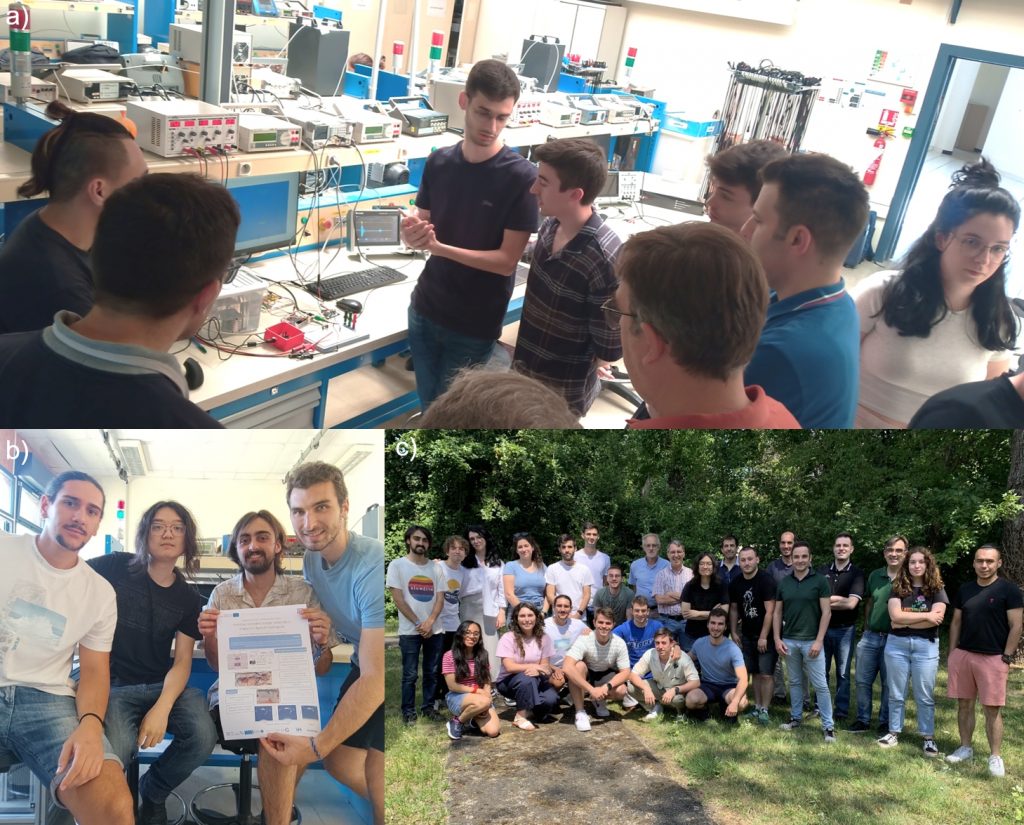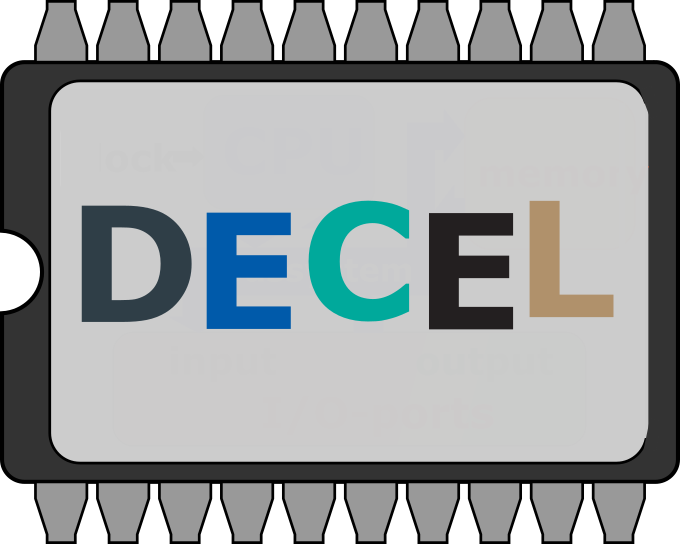Digital Electronics Collaborative Enhanced Training took place at the University of Tours from July 3 to 7, 2023. 20 international students participated in this course in Tours. This week included 28 hours of face-to-face activities (lectures, tutorials, projects, etc.). The aim of the week was to take the control of a basic ultrasound imaging system given to each team. A first guided session provided all the information needed to connect to the system, use the standard hardware and software implemented, and understand the signal expected for a 1D pulse-echo ultrasound system in water. The second tutorial added an extra dimension. The scanning of an ultrasonic probe using a servo motor was explained to the students and a basic 2D static image was recorded and displayed. The last tutorial was to detail the dedicated hardware implementation (Verilog code deployed on FPGA) given to the students and the standard C code developed for a simple interaction with the RedPitaya board (FPGA) involved in the ultrasonic signal processing and servo motor drive. After this last guided session, the students were able to customize their project to optimize it in different ways. Improvements were made in image quality, resolution, frame rate, and reconstruction. At the end of the week, each student team produced a poster and were interviewed by the consortium professors in order to present their solution.

This program took a year to prepare. Some pedagogical material and student results are presented below.
Pedagocical ressources:
The DECEL project has this website and a Moodle section on which several resources have been deployed:
- Online course before the challenge (guest access): https://celene.univ-tours.fr/course/view.php?id=15094
- Online course during the challenge: https://celene.univ-tours.fr/course/view.php?id=16438
Guided lab sheet: 3 guided session allows the students to step up to finally run a B-mode ultrasound scan using the Redpitaya-based ultrasound scanner.
- Session 1: Ultrasound board and Redpitaya ecosystem (NB: acquire a first echo or RF line using the Redpitaya board as a simple scope) => http://decel.univ-tours.fr/data/tutos/DECEL_week_tutorial1.pdf
- Session 2: Ultrasound imaging with Redpitaya (NB: trying to acquire a first image using Arduino board for the servo-motor control and the Redpitaya board with the default configuration and tools) => http://decel.univ-tours.fr/data/tutos/DECEL_week_tutorial2.pdf
- Session 3: Dedicated low level solution (NB: guided implementation of modified HDL, middleware and software layers into Redpitaya board for the ultrasound imaging application) => http://decel.univ-tours.fr/data/tutos/DECEL_week_tutorial3_v3.pdf
Students Deliverables:
The students defended their project orally in front of several teachers. They demonstrated the results obtained with the hardware and presented a poster:
- Poster Team Amboise => http://decel.univ-tours.fr/data/posters/Amboise.pdf
- Poster Team Blois => http://decel.univ-tours.fr/data/posters/Blois.pdf
- Poster Team Chenonceau => http://decel.univ-tours.fr/data/posters/Chenonceau.pdf
- Poster Team Clos Lucé => http://decel.univ-tours.fr/data/posters/Clos_Luce.pdf
- Poster Team Villandry => http://decel.univ-tours.fr/data/posters/Villandry.pdf
Students Feedback data:
Raw data of the student feedback on the DECEL week in Tours can be found at => Student_feedback_on_the_DECEL_week_in _Tours_C2.csv
Code repository:
Even if all the code needed is already included in the tutorials, we list important code repositories here:
- Last version of the repository with several advanced features (to be used with Vivado 20,1): http://decel.univ-tours.fr/data/DECEL_tuto3_V02.zip
- Repository to be used in order to follow step by step the tutorial 3: http://decel.univ-tours.fr/data/decel.zip
NB: these repositories includes code from the HDL level, C code that can be built on Redpiatya embedded Linux and post processing Matlab code. Please refers to tutorial 3 to use it correctly.

